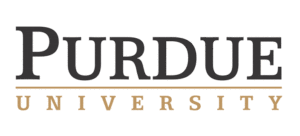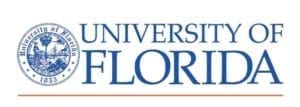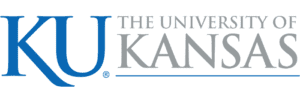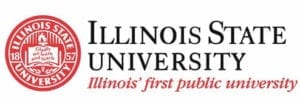
Key Takeaways:
- University of Michigan and University of Wisconsin Madison are two of the top traditional BSN programs.
- It is important to choose programs accredited by recognized bodies like the Commission on Collegiate Nursing Education (CCNE).
- Graduating from a respected BSN program significantly enhances job opportunities, potential earnings, and eligibility for specialized nursing areas.
The best traditional BSN programs provide nurses with the expertise they need to increase their credentials and advance their careers.
Many nurses seeking their BSN already work as registered nurses (RNs). These RNs have a diploma or an associate degree. For these professionals, online bachelor’s completion programs are often the best choice.
But in recent years, nursing has seen higher education standards. In fact, many hospitals now have a BSN as a minimum requirement for new hires. For that reason, many students dedicated to becoming nurses choose to go straight through a full 4-year program from the very beginning. There are many advantages to this strategy, including a strong job market presence and more experiential learning opportunities.
Our Method: Ranking the Best BSN Programs in the US
To rank the best bachelor of nursing programs in the nation, Best Health Degrees editors sought out the most respected, reputable, accredited nursing schools around. With our list in place, we ranked programs according to 5 criteria:
- Cost
- Graduation Rate
- Job Placement
- Salary Potential
- Student Satisfaction
These five factors tell prospective students that the programs featured on BHD have an all-around significant impact on student careers, and they can expect a return on their educational investment. Data comes from College Scorecard, IPEDS, and Niche.
1. University of Michigan

The University of Michigan School of Nursing offers a BSN degree program with a concentration in Global Public Health. UM’s School of Nursing offers degree candidates an opportunity to study abroad as a part of one of the best bachelor of nursing programs. Students graduate with a comprehensive understanding of the burden of global disease and explain how environmental and social elements of society impact public health.
The University of Michigan was established in 1817 as the result of the Morrill Land Grant Act. The University of Michigan is also a flagship, sea-grant, space-grant institution of higher learning in Ann Arbor, MI. The school’s 3,000+-acre campus is home to nearly 19,000 students and is adjacent to an arboretum managed by UM.
Our Favorite Fact: UM’s Global Public Health minor requires a global health practical internship or practicum.
Degree: BSN, Minor in Global Public Health
Learn more about the BSN here!
2. University of Wisconsin Madison

The University of Wisconsin School of Nursing offers several baccalaureate degrees in the field of nursing. They include a Bachelor of Science in Nursing (BSN) degree program, an accelerated BSN degree program, and an online Registered Nurse (RN) to Bachelor of Science in Nursing (BSN) degree program. UW Madison’s trio of nursing degrees is among the best BSN programs in the US. The BSN program graduates are eligible to sit for the RN license test. The accelerated BSN graduates complete their degree in about one year.
The University of Wisconsin, Madison was established in 1848 under the Morrill Land Grant Act; however, the University of Wisconsin is also noted as a public, flagship sea-grant institution of higher learning. The school’s urban campus is home to more than 44,000 students studying for degrees offered by UW-Madison’s 20 schools/colleges. The University of Wisconsin, Madison was the first member of the University of Wisconsin System and remains the largest and oldest school in the state of Wisconsin.
Our Favorite Fact: Each BSN degree program requires the completion of a capstone fieldwork project.
Degree: BSN, Accelerated BSN, Online RN to BSN
Learn more about the BSN here!
3. Texas A&M University

Texas A&M University offers three BSN-related degree programs. The traditional Bachelor of Science in Nursing (BSN) degree program, a second-degree BSN degree program, and a Registered Nurse (RN) to Bachelor of Science in Nursing (BSN) degree program. Texas A&M University offers some of the best bachelors of nursing in the country. The traditional BSN program is designed for students who have completed 2 years of the prerequisites. The second-degree BSN program is designed for those who have already earned a bachelor’s degree and can be completed in 15 months. The RN to BSN is designed for working nurses who need the flexibility of a part-time (or full-time) program.
Texas A&M University is a land grant, sea-grant, space-grant, and military college that was established in 1871 under the Morrill Land Grant Act. The school is also the flagship campus of Texas A&M University’s system. The school’s campus exceeds 5,000 acres and is home to nearly 70,000 students.
Our Favorite Fact: Texas A&M University’s alumni association exceeds 450,000 graduates, across the globe – a great benefit for Aggies on the job market.
Degree: BSN, Second Degree BSN, RN to BSN
Learn more about the BSN traditional nursing programs near me!
4. Purdue University

The College of Health & Human Sciences/School of Nursing offers Purdue University’s Bachelor of Science in Nursing (BSN) degree program that prepares graduates to sit for the National Council Licensure Examination for Registered Nurses (NCLEX-RN). Student graduates from Purdue University’s prepared for rewarding careers in the emergency rooms, intensive care units, or even a Peace Corps member in underdeveloped foreign nations.
Purdue University was established in 1869 and holds the distinction of being the flagship school of Purdue’s university system. Purdue University proudly claims it has 25 alumni members who are professional astronauts. The school’s 2,500+-acres is home to more than 43,000 students studying for degrees offered by 10 schools/colleges. Purdue University has the distinction of enrolling the 4th largest foreign student enrollment in the nation.
Our Favorite Fact: Purdue has active partnerships with more than 199+ nurse-related agencies.
Degree: BSN
Learn more about the BSN here!
5. University of Florida

The University of Florida College of Nursing offers a Bachelor of Science in Nursing (BSN), an accelerated Bachelor of Science in Nursing (BSN), and a Registered Nurse (RN) to Bachelor of Science Nursing (BSN) degree programs that have received accreditation from the American Association of Colleges of Nursing (AACN) and the Commission on Collegiate Nursing Education (CCNE). The accelerated BSN degree is designed for students who already hold a bachelor’s degree; the coursework can be completed in 4 consecutive terms.
The University of Florida was established in 1853 and holds the distinction of being a state flagship university of the State University System of Florida. It is also a space-grant, sea-grant, and Land Grant University. The University of Florida’s suburban 2,000-acre campus is home to more than 56,000 students studying from sixteen colleges/schools. The Florida Board of Governors considers -the University of Florida (UF) a preeminent university.
Our Favorite Fact: More than 70% of UF nursing graduates go on to master’s and doctoral programs.
Degree: BSN, Accelerated BSN, RN to BSN
6. Northeastern University

Northeastern University’s Bouve College of Health Sciences School of Nursing offers three BSN degree tracks. The traditional BSN degree program requires 120 credit units; with nursing, courses beginning in the student’s sophomore year. The accelerated BSN program is a full-time, 16-month program that includes clinical experiences and online coursework. The RN to BSN degree program can be completed in as little as three semesters, but students are given two years to complete the work on a part-time basis.
Northeastern University was established in 1898 as a private institution of higher education. The school operates with four campuses across Boston in the neighborhoods of Roxbury, South End, Fenway, and Back Bay. Northeastern University is the best-known cooperative education program that arranges employment for students (and its paid employment) while finishing their degree.
Our Favorite Fact: Northeastern University is recognized as the number one school for career services and internships.
Degree: BSN, Accelerated BSN, RN to BSN
Learn more about the BSN here!
7. University of Washington

The University of Washington’s School of Nursing offers a traditional Bachelor of Science in Nursing (BSN) degree program and an accelerated Bachelor of Science in Nursing (BSN) degree program. The traditional BSN program is one of the best BSN programs in the US and is offered to full-time students only. The accelerated BSN degree program offered by U-Dub is designed for students who already hold a bachelor’s degree. The accelerated track offers a rigorous academic schedule for four back-to-back quarters. With a tri-campus presence, both UW’s Bothell and Tacoma campuses also offer RN to BSN programs in addition to the main Seattle campus.
The University of Washington was established in 1861 and holds the distinction of being the flagship campus of the University of Washington, and a sea-grant and space grant institution of higher learning. The university’s urban campus covers more than 300 acres and is home to nearly 48,000 students. Additionally, UW is home to one of the world’s biggest library systems to manage the school’s 26 libraries.
Our Favorite Fact: UW’s School of Nursing is home to eight research Centers of Excellence.
Degree: BSN and Accelerated BSN
Learn more about the BSN here!
8. University of Texas at Austin

The University of Texas at Austin School of Nursing’s traditional Bachelor of Science in Nursing (BSN) degree program is recognized by Value Colleges among the five best BSN programs in the US. UT Austin’s BSN program requires the completion of 120 credit units in four years of study. Program graduates are eligible to sit for the NCLEX-RN, the National Council Licensure Examination for Registered Nurses.
The University of Texas at Austin was established in 1883 and is considered a public ivy league. The University of Texas at Austin is a member school and flagship school of the University of Texas System. The school’s main campus covers more than 420 acres and is home to more than 51,000 students and more than 3,000 academic staff members. The University of Texas Longhorns are a member school of the Big 12 Conference, and have won more athletic awards than any other member school, since the creation of the Big 12 Conference.
Our Favorite Fact: UT offers more scholarships and grants to nursing students than any other university in Texas.
Degree: BSN
Learn more about the BSN here!
9. University of Minnesota

The University of Minnesota, Twin Cities School of Nursing offers a traditional Bachelor of Science in Nursing (BSN) degree program that prepares graduates to be eligible to sit for the National Council Licensure Examination for Registered Nurses (NCLEX-RN). The Commission on Collegiate Nursing Education (CCNE) accredits the BSN program offered by the University of Minnesota. Freshman nursing students study at the Twin Cities campus while transferring nursing student study on the Rochester campus.
The University of Minnesota was established in 1851 under the Morrill Land Grant Act. The University of Minnesota, Twin Cities’ campuses covers more than 2,700 acres and is home to more than 47,500 students. Students enrolled in the school have the option of studying for degrees from the school’s 19 schools/colleges. The St. Paul campus of the University of Minnesota holds the distinction of being the biggest and oldest member school of the University of Minnesota system.
Our Favorite Fact: UMN’s nursing school has been awarded the Health Professions Higher Education Excellence in Diversity Award for three years in a row.
Degree: BSN
Learn more about the BSN here!
10. University of Connecticut

The University of Connecticut School of Nursing offers a Bachelor of Science in Nursing (BSN) degree program that has received accreditation from the Collegiate Nursing Education (CCNE). UConn’s four-year includes coursework that includes Human Genetics, Human Anatomy Physiology, Ethics, as well as a capstone nursing practicum. The first two years of study involve the general baccalaureate degree, and the professional nursing practice programs begin in the student’s sophomore year.
The University of Connecticut was established in 1881 and holds the distinction of being a research, land grant, sea grant or space-grant university. UConn’s campuses cover more than 4,000 acres and are home to more than 32,100 students. UConn has been recognized by US News as the number 1 public institution of higher learning in the New England region of the United States.
Our Favorite Fact: Students of UConn Nursing have nearly 70 facilities in the region to choose for clinical experience.
Degree: BSN
Learn more about the BSN here!
11. University of Iowa

The University of Iowa College of Nursing (which is connected to the University of Iowa Health Sciences Campus) offers a Bachelor of Science in Nursing (BSN) degree program and a Registered Nurse (RN) to Bachelor of Science in Nursing (BSN) degree program. UI’s BSN degree programs require the completion of 128 credit units, and the RN to BSN program requires the completion of 32 credit units.
The University of Iowa was established in 1847 as a public institution of higher education dedicated to research. The University of Iowa holds the distinction of being the oldest school in the state of Iowa and the second-largest school. Nearly 33,000 students study from eleven colleges/schools on the school’s 1,800+-acre campus. The University of Iowa (UI) is recognized as the first institution of higher learning that offered a coeducation medical program.
Our Favorite Fact: Bestschools.com, Niche, and Value Colleges recognize the University of Iowa’s baccalaureate nursing programs among the top programs in the country.
Degree: BSN, RN to BSN
Learn more about the BSN here!
12. Rutgers University

Rutgers University’s School of Nursing offers three baccalaureate-level nursing degree programs. They include a Bachelor of Science in Nursing (BSN) degree program, a second degree BSN degree program, and a Registered Nurse (RN) to Bachelor of Science in Nursing (BSN) degree program. The traditional 4-year prepares graduates to sit for the NCLEX-RN exam. The second-degree fourteen-month program is designed for those who already hold another bachelor’s degree. The RN to BS in Nursing program is designed for working professionals and is also available, for the most part, online.
Rutgers University, the State University of New Jersey was established in 1766 as a private university but, and is currently the flagship institution of learning in the Garden State. The school also holds the distinction of being a space-grant, land grant, and sea-grant institution of higher education. Rutgers University, with nearly 69,000 students, is the largest university in New Jersey. Rutgers University is one of the 9 colonial colleges that were established before the American Revolution.
Our Favorite Fact: Rutgers has New Jersey’s largest and most comprehensive nursing school.
Degree: BSN, Second Degree BSN, RN to BSN
Learn more here about this traditional BSN program!
13. Indiana University, Bloomington

Indiana University, Bloomington School of Nursing offers 3 education paths that lead to a baccalaureate degree in nursing. The traditional Bachelor of Science in Nursing (BSN) education track program, the second-degree BSN degree program, and a Registered Nurse (RN) to Bachelor of Science in Nursing (BSN) degree track.
Indiana University, Bloomington was established in 1820 and is currently the flagship campus of the Indiana University system. IU Bloomington’s small city campus covers nearly 2,000 acres and is home to more than 43,500 students. Highlight — Indiana University, Bloomington is regularly recognized among the top fifty public institutions of higher learning and as a Public Ivy school.
Our Favorite Fact: Indiana University, Bloomington has received prestigious recognition (actually two) from the National League for Nursing’s Center of Excellence in Nursing Education.
Degree: BSN, Accelerated BSN, RN to BSN
Learn more here about this traditional BSN program!
14. University at Buffalo

The University at Buffalo has BSN, RN to BSN, and accelerated BSN programs available at its upstate New York campus. The nursing program at Buffalo is unique because it offers all three of the above options. Many programs will offer students one or two of these options, but few schools offer all three degree tracks. Students who want to have as many options for their education as possible may find Buffalo to be one of the best BSN programs in the US, perhaps even one of the best bachelor of nursing programs in the world.
Buffalo is known for being one of the few prestigious universities in New England that has affordable tuition. There are many renowned universities in this region of the United States, but most of these institutions have exorbitant tuition fees. Buffalo offers students in the area a great education on a budget. Buffalo is often ranked among the top 30 public universities in the country.
Our Favorite Fact: Nursing students at Buffalo have many global outreach opportunities, including service in Haiti, Ghana, and Belize.
Degree: BSN, RN to BSN, Accelerated BSN
Learn more here about this traditional BSN program!
15. University of Pittsburgh

The University of Pittsburgh offers both a traditional BSN program and a 2nd Degree BSN program. The 2nd degree program is what makes the nursing options at Pitt a little different. The average American in the workforce will switch career fields several times during their lives. Many people are interested in getting into the healthcare industry due to the relatively high pay and a large number of opportunities. If they already have a bachelor’s degree in another field, the Pitt program is one of the best BSN programs in the US for their needs and even one of the best bachelor of nursing programs in the world for people in their situation.
Pitt is another very prestigious public university. Like Buffalo, it is often ranked among the top 20 or 30 public universities in the country. In fact, Pitt is so well-respected that many people believe it is a private university. However, it is a public university with relatively low tuition.
Our Favorite Fact: Pitt receives more healthcare research funding than almost any American university.
Degree: BSN, 2nd Degree BSN
Learn more here about this traditional BSN program!
16. Florida State University

Florida State University has both a BSN degree track and an accelerated BSN track in its nursing program. Students must apply to the nursing school after their first two years of foundational courses, building on both general education and on evidence-based practice. This program is unique because it offers a special program for veterans to make it easier for them to transition from the military to working as a nurse.
FSU is known for offering generous financial aid to its students. This is especially true for students from socially disadvantaged backgrounds. There are many grants and scholarships designed specifically for such students. FSU’s nursing program also offers an online Doctor of Nursing Practice degree.
Our Favorite Fact: FSU is one of the best BSN programs in the US for veterans, as even many of the best bachelor of nursing programs don’t offer a special program for veterans.
Degree: BSN, Accelerated BSN
Learn more here about this traditional BSN program!
17. University of Oklahoma

The University of Oklahoma’s nursing program offers BSN, Accelerated BSN, LPN to BSN, and RN to BSN degree tracks. The number of degree tracks is one of the most notable aspects of this program, as few nursing programs offer four different tracks. Students who aren’t sure which nursing degree they want to pursue should consider Oklahoma to be one of the best bachelor of nursing programs in the country for them, better even than the best BSN programs in the US.
Oklahoma has a Health Sciences Center for students in nursing and other healthcare degree tracks. This center provides funding and facilities to students that few competing universities can match. The health sciences are considered to be a high priority of Oklahoma, and the Health Sciences Center is evidence of this. Oklahoma is classified as a “very high research activity” university.
Our Favorite Fact: The Ziegler College of Nursing dates back to 1911, making it one of the nation’s oldest and most prestigious nursing schools.
Degree: BSN, Accelerated BSN, LPN to BSN, RN to BSN
Learn more here about this traditional BSN program!
18. University of Utah

The University of Utah has a well-regarded and unique BSN program. This program sets itself apart from similar programs by offering a focus in gerontology (healthcare for the elderly). This is a rapidly growing area of healthcare with a severe need for more nurses. Student nurses who want to go into gerontological medicine may find Utah to be one of the best BSN programs in the US for their interests and even one of the best bachelor of nursing programs for prospective gerontological nurses in the world.
Utah is known for its research funding, especially for STEM fields like nursing. Students can complete research projects that will give them a unique learning experience and look great on their resume. Many universities do not offer this sort of opportunity, and Utah graduates will have an advantage when it comes time to find a job after graduation.
Our Favorite Fact: Utah offers the Nursing Early Assurance program, which allows exceptional high school seniors to begin working on their nursing degrees.
Degree: BSN
Learn more here about this traditional BSN program!
19. Stony Brook University

Stony Brook University has a nursing program with several degree tracks including BSN, Accelerated BSN and RN to BSN paths. What makes Stony Brook’s nursing program so unique is the Scholars Of Nursing program. This is essentially an academically rigorous honors program, which is rarely found in a school of nursing. Prospective nursing students who want to be academically challenged may find Stony Brook’s program to be one of the best bachelor of nursing programs in the state, and even one of the best BSN programs in the US.
Stony Brook is well-known for its medical and health sciences division. This component of the university is one of the best-funded and most well-known health colleges in the region. Stony Brook is also a public university with relatively low tuition, making it even more attractive to prospective students.
Our Favorite Fact: Stony Brook is one of the few universities in the country to be a member of both the Association of American Universities and the Universities Research Association.
Degree: BSN, Accelerated BSN, RN to BSN
Learn more here about this traditional BSN program!
20. Arizona State University

Arizona State University offers a BSN with 6 specializations for students to choose from. Few universities offer this many different specializations. Students who already know what area of nursing they want to go into may consider ASU to be one of the best BSN programs in the US for their specific interest, especially if many of the best bachelor of nursing programs don’t offer the specialization that they’re looking for.
The medical and health sciences programs at Arizona State, including the nursing program, are known for their focus on community health. Many nurses will end up employed in community health positions, such as those at schools and clinics. This focus is vital for the nurses of the future.
Our Favorite Fact: ASU’s BSN program can be taken at the Downtown campus, the Gila Valley campus, and online.
Degree: BSN with 6 specializations
Learn more here about this traditional BSN program!
21. San Diego State University

San Diego State University offers BSN and RN to BSN degree paths in its nursing program. The nursing program at SDSU is known for accepting many transfer students, especially those who have already completed an associate’s in nursing at a two-year college. SDSU has one of the best BSN programs in the US for undergraduate transfer students, who might not find the right fit in other programs.
This university has a large and powerful alumni network, particularly in the Southern California region. Additionally, it regularly helps students and recent grads meet with representatives from the alumni association. Alumni can provide valuable career advice and mentorship to students and grads.
Our Favorite Fact: SDSU has one of the most diverse nursing programs in the country.
Degree: BSN, RN to BSN
Learn more here about this traditional BSN program!
22. University of Kansas

The University of Kansas has a BSN program that is routinely ranked as one of the finest in the Midwest region of the United States. This program is unique in that it is offered through a dedicated university medical center, which many nursing programs aren’t. This gives students access to highly experienced faculty and plenty of practical experience. Kansas is one of the best BSN programs in the US, and indeed one of the best bachelor of nursing programs in the world.
The University of Kansas Medical Center, through which the nursing programs are offered, is considered to be one of the best medical centers affiliated with an American public university. The Center is particularly known for being a leading treatment and research location for cancer. Nurses that want to go into oncological medicine may want to consider Kansas.
Our Favorite Fact: The Kansas Medical Center is located in Kansas City, with the main University of Kansas campus being in Lawrence.
Degree: BSN
Learn more here about this traditional BSN program!
23. Louisiana State University and A&M College

Louisiana State University offers BSN and RN to BSN nursing programs through the LSU Health campus in New Orleans. The nursing programs at LSU are unique in that they do not admit new college students. Students must complete prerequisite courses at LSU or at any other accredited college or university. Only the best applicants who have completed these prerequisites are granted admission to the LSU nursing programs. The nursing program at LSU is among the best BSN programs in the US for students who want an academic challenge equal to that found at the best bachelor of nursing programs.
LSU Health, where the nursing programs are based, is focused on training Louisiana residents to serve in the state. The school does admit a handful of out-of-state students, but the vast majority of the students are from Louisiana. Prospective nursing students who want to serve in their home communities may find LSU to be the perfect fit.
Our Favorite Fact: LSU Health offers students practical experience at several affiliated hospitals.
Degree: BSN, RN to BSN
Learn more here about this traditional BSN program!
24. Illinois State University

The nursing program at Illinois State University offers a BSN degree that differs in one important way from most nursing programs. Prospective nursing students who want a well-rounded education may find that ISU has one of the best BSN programs in the US because it offers a more balanced approach than some of the best bachelor of nursing programs. ISU’s BSN curriculum takes four semesters of full-time study to finish.
ISU is known for its affordable tuition for Illinois residents and its generous financial aid. Students from outside Illinois should keep in mind that ISU is a public university. Like most public institutions, ISU charges increased tuition to out-of-state students.
Our Favorite Fact: The classes which make up the nursing program are an even blend of research, clinical and laboratory courses. Most nursing programs focus on only one of these disciplines.
Degree: BSN
Learn more here about this traditional BSN program!
25. University of Illinois at Chicago

The University of Illinois at Chicago offers BSN and RN to BSN programs through its School of Nursing. The nursing programs at UIC are unique in their focus on educating prospective nurses on social issues in healthcare along with traditional clinical education. Socially conscious student nurses may find that UIC is one of the best BSN programs in the US for their interests, more so than the traditional best bachelor of nursing programs.
UIC is known for being a university with very high research activity. Like some of the other schools on this list, UIC nursing students will have the opportunity to perform original research during their educations. This will set them apart from other recent nursing grads.
Our Favorite Fact: UIC’s nursing programs allow undergraduates to make a seamless transition to graduate nursing study.
Degree: BSN, RN to BSN
Learn more here about this traditional BSN program!
Why Earn a BSN?
The reason why a BSN in nursing is important for your goals may vary. A key advantage of a higher level of education is the impact on your career. You will have more opportunities to advance into leadership roles within nursing when you have a higher level of education. It means you have greater expertise in your field and may have specialized skills based on your education and training, and are prepared for some of the best careers for the future. The result of taking on a leadership role or working in a specialized field of study is a higher salary. A bachelor’s degree also prepares you the complexity of a changing work environment. Since nursing is evolving as new technology and advanced techniques become available, a BSN is worth the extra training that helps you find ways to adapt to the changes that may arise over time.
How Do I Recognize a Good BSN Program?
When you are looking into the benefits of a nursing career, you may notice that you have options to start working without a bachelor’s degree. So, is a BSN worth it? A simple answer is that a bachelor’s degree in nursing is worth the extra time and expense due to the high return on your investment and the greater opportunities for your career.
Recognizing a good BSN program plays an essential role in advancing into your career. You want to clarify the standards that set programs apart and find a program that fits your long-term goals for your career. Nursing school accreditations are a good standard to consider when looking into different programs. Nursing school accreditations refer to third-party groups that set standards for a program and give accreditation to schools that meet or exceed their standards.
In nursing, there are two primary accreditation standards. A school may have accreditation from the Commission on Collegiate Nursing Education or the Accreditation Commission for Education in Nursing. When you are looking at ACEN vs CCNE, you want to compare their standards for accreditations. The ACEN standards break down into specific categories, such as the staff and faculty, the students, and the curriculum. CCNE accreditation standards focus on evaluations of the school, the curriculum, and the faculty. The standards help you clarify the best programs based on your goals.
Standards in nursing education bring up a few questions. Is ACEN accreditation good? Is CCNE nursing a better choice? Ultimately, both organizations set high standards for the school, students, and faculty. You want to ensure that a program is accredited by one of the programs, but the best accreditation depends on your goals and plans.
What Are the Advantages of a Traditional On-Campus BSN Program?
When you are looking into colleges near me with nursing programs, you may consider alternatives to the traditional on-campus program; online nursing bachelor’s programs have become common. By understanding the advantages of traditional on-campus BSN programs, you can find the best option for your goals.
mentorship
A key advantage of bachelor of science in nursing schools that offer on-campus classes is the opportunity for mentorship. You have direct contact with faculty members who may offer mentorship opportunities. You can discuss your goals with a professor and get immediate answers to your questions.
Networking
The best colleges for nursing in the US also offer networking opportunities through the school. Networking is a useful way to obtain a new job and start your career as a nurse. When you attend school on-campus, you gain access to school networking opportunities as well as networking in nursing through the school and your teachers.
Job Opportunities
Job market opportunities also arise when you attend school on-campus. Many colleges and universities have options to help students start their careers or find internship opportunities while they attend classes and work on a degree. You may have more options for your nursing career when you take advantage of the job market opportunities available through your campus.
What Will You Learn in a BSN Program?
Focusing on a BSN program allows you to learn a variety of skills and theories associated with nursing. While the bachelor of science in nursing requirements may vary slightly between colleges and universities, you can expect some common courses and details that apply to most nursing programs.
A common area of discussion in a BSN program is ethics and policy. You learn about the legal standards set for medical professionals and you focus on ethics in nursing that help with your long-term career goals.
You may learn about community health and family health, as well as cultural competency as it applies to nurses. The focus on family and community prepares nurses to work with families and communities throughout their career.
A BSN program also focuses on teaching nurses the skills they need for their careers. The program may offer specialized courses to help nurses gain experience and skills that relate to a specific area of nursing. The specialized courses may also focus on clinical experience and encourage students to work in a lab or to work under a professor to gain experience in their field of study.
You can also expect to learn about technology and the role of technological tools in nursing. The technology classes ensure that you can handel new policies and tools used in medical facilities.
Related Rankings:
15 Best Online BSN Degree Programs
10 Fastest Online BSN Degree Programs
10 Most Affordable BSN Degree Programs
What Can I Do with a Bachelor’s in Nursing?